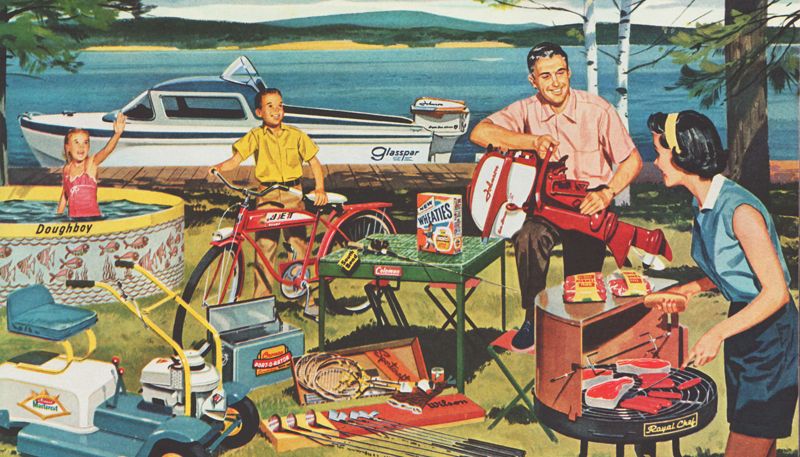I’m not any type of vetted social scientist, so I’ll tackle this quickly up top before belaboring any points.
35,000-foot view: Yes, for sure. It’s much less about “everyone gets theirs,” though, and more about “a certain few get theirs and everyone else has to kind of hustle and struggle, but the end result of that struggle is still largely better than it would be if you were living in, say, Mongolia.”
View many people feel every day: Yes, it’s dead and I can’t get ahead.
How did that all happen?
Again, won’t go into a ton of nuance, but … maybe it never was “The American Dream” at all, and instead “a fantasy of self-congratulation, inextricable from the slave society upon which it was built.” That’s certainly one valid take.
Just to cut to the quick here: the reality is that most people have no chance at a “liquidity event,” i.e. big money from Google or Amazon into something you built. Most people have their house/condo and maybe some property and investments, and the lower classes have less than that. So when you see stats about 0.1% owning as much as 90%, that’s very logical. The 0.1%, which is so rare the numbers are hard to comprehend, has many liquidity events. That gets them paid (and laid!), and that doesn’t happen to most of us. We have salaries and maybe some perks and a house that will ideally grow 3-8 percent per year. That’s where the chasm is, and rises.
Made worse: financial literacy in America is hardly elite, and the savings rate for those under 35 years old is about negative 1.8 percent.
Then: there’s a thing called “firm-size wage effect,” which means that bigger companies actually want to pay you LESS, even though they have more resources.
This is where the gap resides. In all these stats. There’s a lot more to it, yes. But this is a blog post, not an economics textbook.
Is work slavery?
Work can no doubt feel “shockingly inhumane,” but is it akin to slavery? There are some arguments to that point, sure. But no, work is not slavery. Most people in white-collar lack purpose and get yelled at for dumb stuff, but no one is whipping them across the back (well, maybe emotionally sometimes).
A big argument you will hear around the supposed demise of The American Dream is “I go to work and it’s all bullshit, and I can’t even buy the things or take the trips I want!”
To which the easy, trite answer is:
- It would be worse if you lived in Iran.
- Learn how to save money better.
- Study the market of where you live and figure out the next “I gotta live THERE!” boom, buy under that market, and sit on that for a second.
You can have a better life in America than in most places. Yes, many aspects of it are broken. Yes, it’s very focused on individual achievement. Yes, all these things are true. Oh yea, the President might be insane. I got it.
Does “the dream” still exist? For a lot less people than it once did, but unabashedly it’s still out there in a slightly different form.

The dream is elusive Ted, in some parts of the country (certainly not Taxifornia where I reside) it still exists, housing is somewhat affordable, taxes low but in the end life is so much faster than in the past. I sometimes wonder whether the “fastness” of life is what has really destroyed the “dream”. Am I better off than my parents or grandparents; that’s debatable. I make more than they did but am much more indebted than any of them were. Their lives were slower, fuller and much better in my estimation. They may have been tired after work but its not the tired I am after driving thru so much traffic back and forth to work. So I say the dream is really gone, not sure it can come back and some (the leftist socialists) would rather have it that way.
The real question is who were the ones that “created” the American Dream.